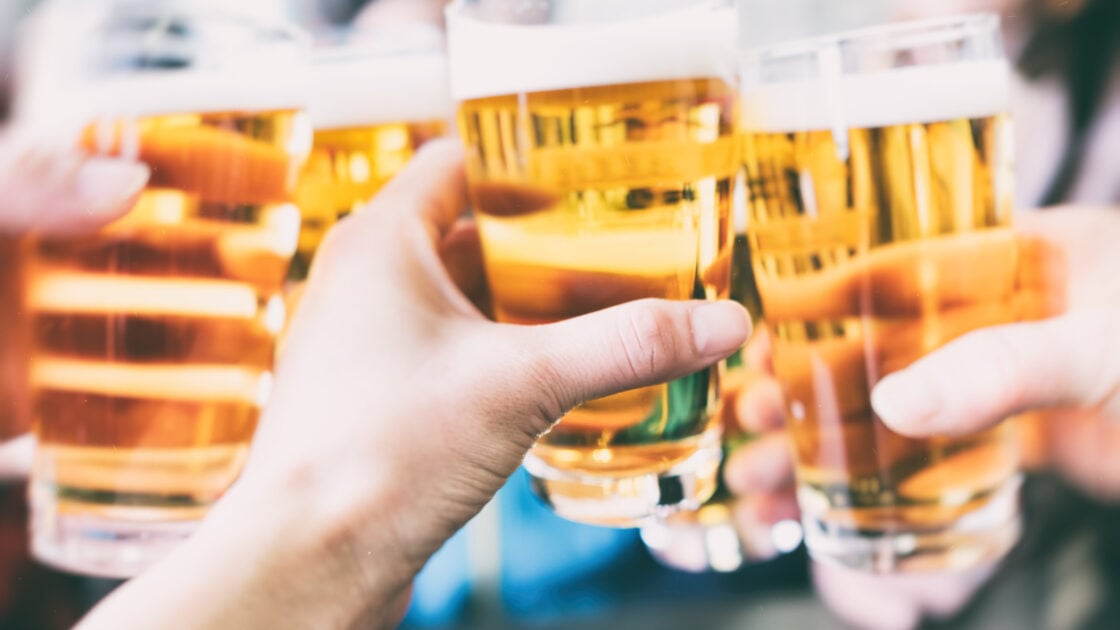Microplastics Present in 12 American Beers, New Study Finds

Microplastics have been detected in 12 different American beers, according to a study published in the journal Public Library of Science. All 12 of the beers tested by the researchers contained water from the Great Lakes, and all 12 tested positive for microplastic contamination.
The average beer tested was found to contain four particles of plastic per liter, with some beers containing up to 14 particles per liter, reports the Huffington Post. The particles measured approximately 0.1 to five millimeters in length, on average.
The study also tested 159 samples of international tap water and 12 different brands of commercial sea salt for microplastics. Tap water, the researchers found, contained the highest level of plastic contamination, with 81 percent of samples containing microplastics. American tap water contained the highest mean of any country tested, with 9.24 particles per liter. Microplastics were also found in all 12 salt brands tested, with a range of contamination levels from 46.7 to 806 particles per kilogram of salt.
While the average number of plastic particles found in the beer was similar to that found in the tap water, the study authors believe that “not even a weak correlation” can be drawn.
“While both the municipal tap water and the beers analyzed all contained anthropogenic particles, there seemed to be no correlation between the two,” write the study authors, “Which would seem to indicate that any contamination within the beer is not just from the water used to brew the beer itself.”
“In fact,” the study continues, “The highest and lowest counts in this study came from two beers that were brewed in the same city using the same municipal water supply.”
They say that more research is needed to identify the exact source of the microplastics.
This new study follows similar research published in 2014, this time concerning plastic fibers that were found in 24 different German beers, including the ten most popular beer brands in the country.
The presence of plastic in foods and drinking water is concerning chiefly due to accumulation, writes Treehugger. The outlet cites the study authors’ warnings that plastics “have been known to adsorb chemicals from the environment” including carcinogens and reproductive toxicants, in addition to metals and bacteria.
Studies such as this one, the outlet continues, can help consumers identify products that they can attempt to remove from their diets – such as beer – to avoid accumulating plastic particles and any associated toxins in their systems.
Related on Organic Authority
Research Showing Fish Enjoy Eating Microplastics a ‘Complete Fantasy’
Humans Have Made ‘One-Billion Elephants Worth’ of Plastic, and (So Much) More is Coming
Still Clean as a Whistle Though? Unilever Soaps to Ditch Plastic Micro Beads

